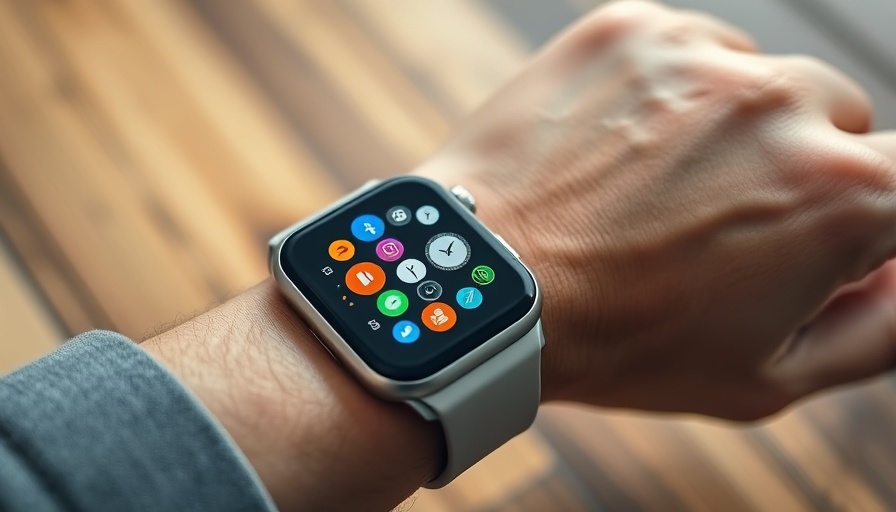
Understanding the Intersection of Sleep Technology and Patient Care
In an age where technology is seamlessly integrated into our daily lives, smartwatches and other consumer electronics are evolving to do more than just tell time or check messages. Recently, models like the Samsung Galaxy Watch and Apple Watch gained FDA approval for features that can detect potential sleep apnea—a condition affecting millions yet often undiagnosed.
Why Wearables Matter for Sleep Disorders
The question of whether wearable technology can truly assist those living with sleep apnea was at the heart of a study conducted by researchers at Michigan Medicine. Led by Dr. Nicholas R. Lenze, the research surveyed individuals with a history of obstructive sleep apnea (OSA) to explore their attitudes toward consumer sleep technology. Not only were the researchers interested in monitoring treatment responses such as CPAP therapy, but they also aimed to understand the potential for these gadgets in diagnosing undetected cases—a crucial consideration since it’s estimated that 80% of those with sleep apnea remain undiagnosed.
A Widespread Interest in Monitoring
One of the striking findings from the study revealed that an overwhelming 92% of participants saw value in using consumer sleep technology to monitor treatment responses. This indicates a significant interest among patients regarding how technology can support their health, and yet, a disconnect in affordability persists. While many expressed interest, very few were prepared to invest more than $100 in such gadgets.
Recognizing the Socioeconomic Divide
Finding a solution to the sleeping disorder epidemic should not exacerbate existing disparities. As the cost of advanced health-tracking technology remains high, it's vital to ensure that all patients have equal access to the potential benefits of these innovations. This raises questions about how we can keep these technologies affordable and effective for everyone, regardless of their socioeconomic status.
How Sleep Tech Can Transform Patient Outcomes
If implemented effectively, smartwatches and wearables could significantly enhance treatment pathways for sleep apnea patients. Technologies designed to monitor how patients respond to therapies could provide actionable feedback, adjusting treatment in real-time and improving overall health outcomes. This personalized approach to healthcare is essential as we move into an era where data drives decision-making.
Empowering Patients to Take Charge of Their Health
For those suffering from sleep disorders, these technologies offer more than just monitoring; they empower individuals to take an active role in their care. Awareness of one's sleep patterns and treatment responses can lead to proactive conversations with healthcare providers and a more engaged patient experience.
Conclusion
As technology continues to evolve, so too does the way we understand and engage with our health. The integration of consumer sleep technology into patient care represents a forward-thinking approach in a rapidly changing landscape. While challenges around accessibility remain, the potential for smarter, more connected patient care is undeniable. By embracing these advancements, individuals suffering from sleep disorders can look forward to better support and improved quality of life.
Take charge of your sleep journey today! Explore how integrating technology into your health regimen can lead to improved sleep and overall well-being. Don't wait; invest in a healthier future now.
 Add Row
Add Row  Add
Add 




 Add Row
Add Row  Add
Add 

Write A Comment